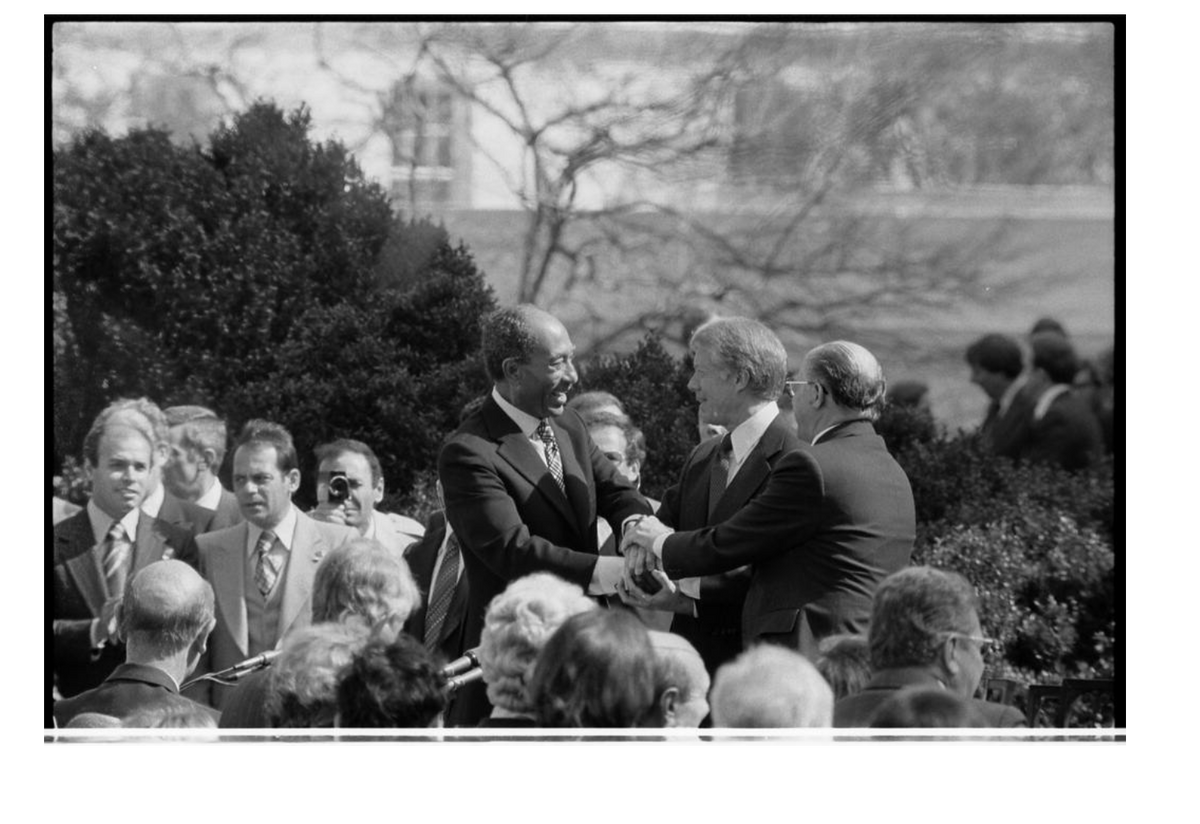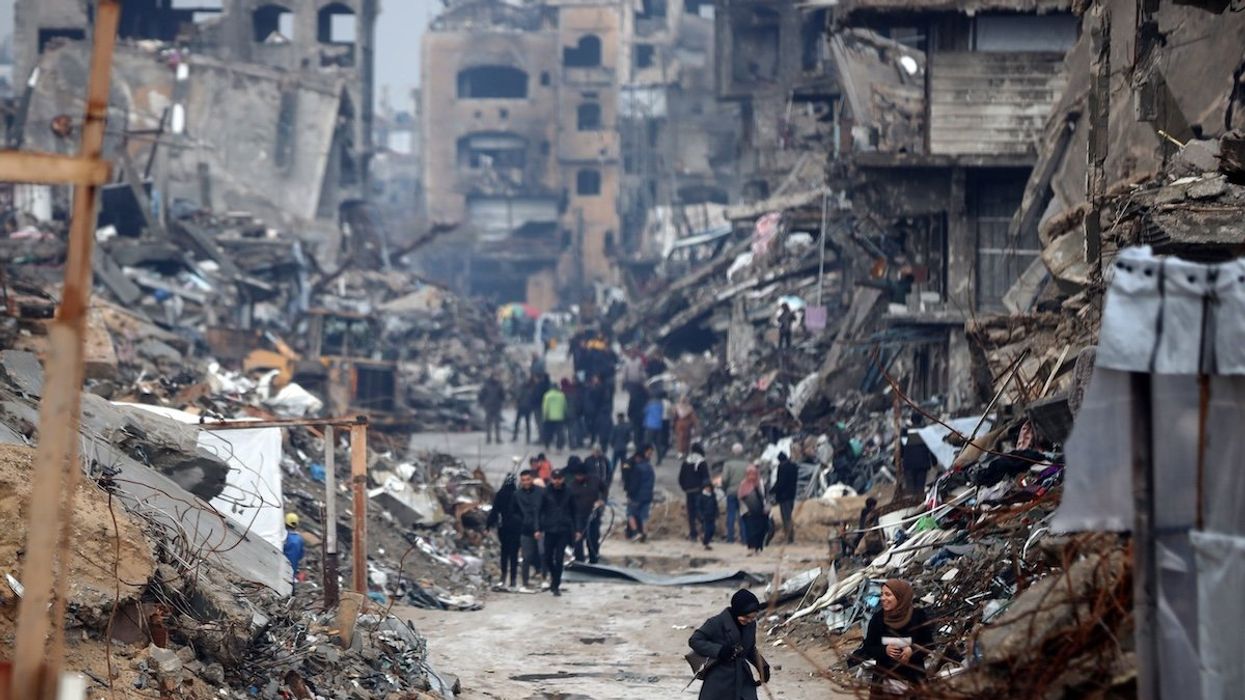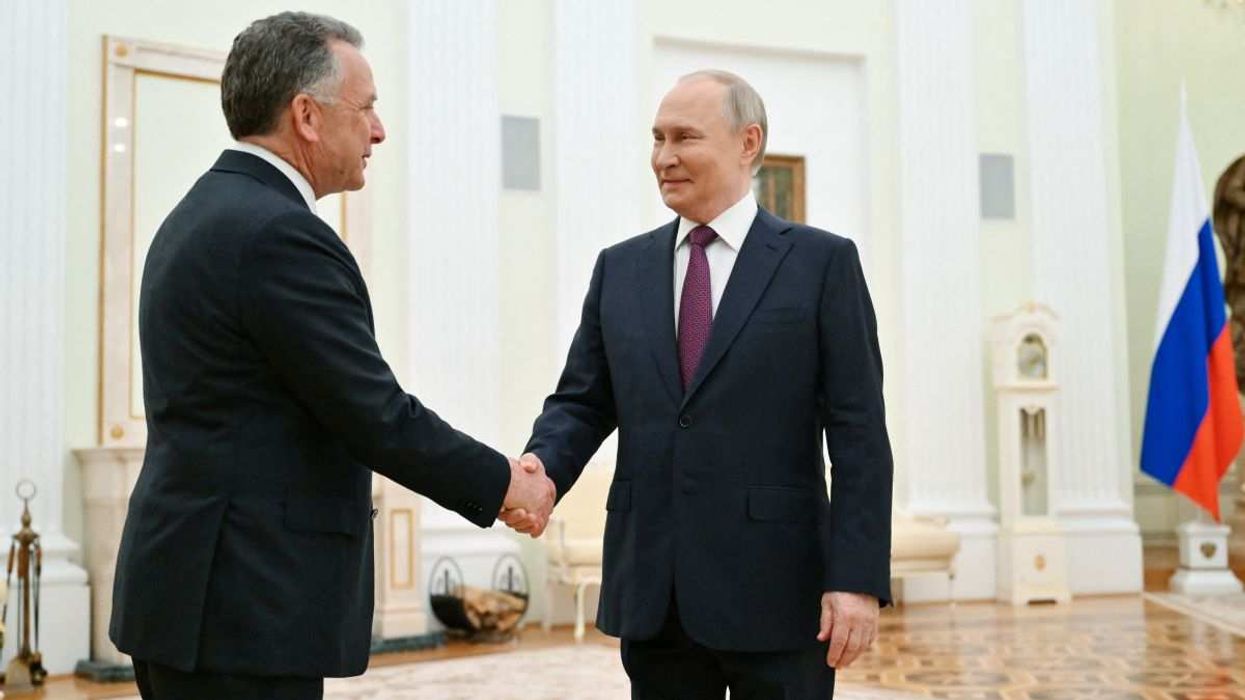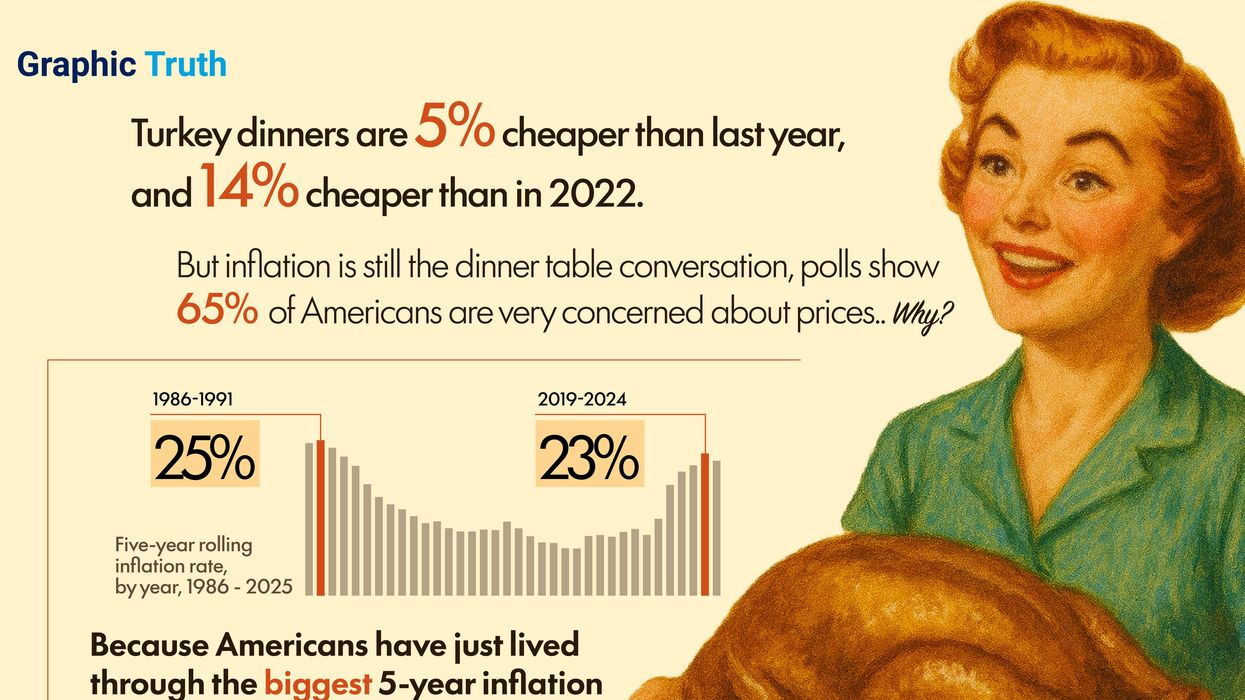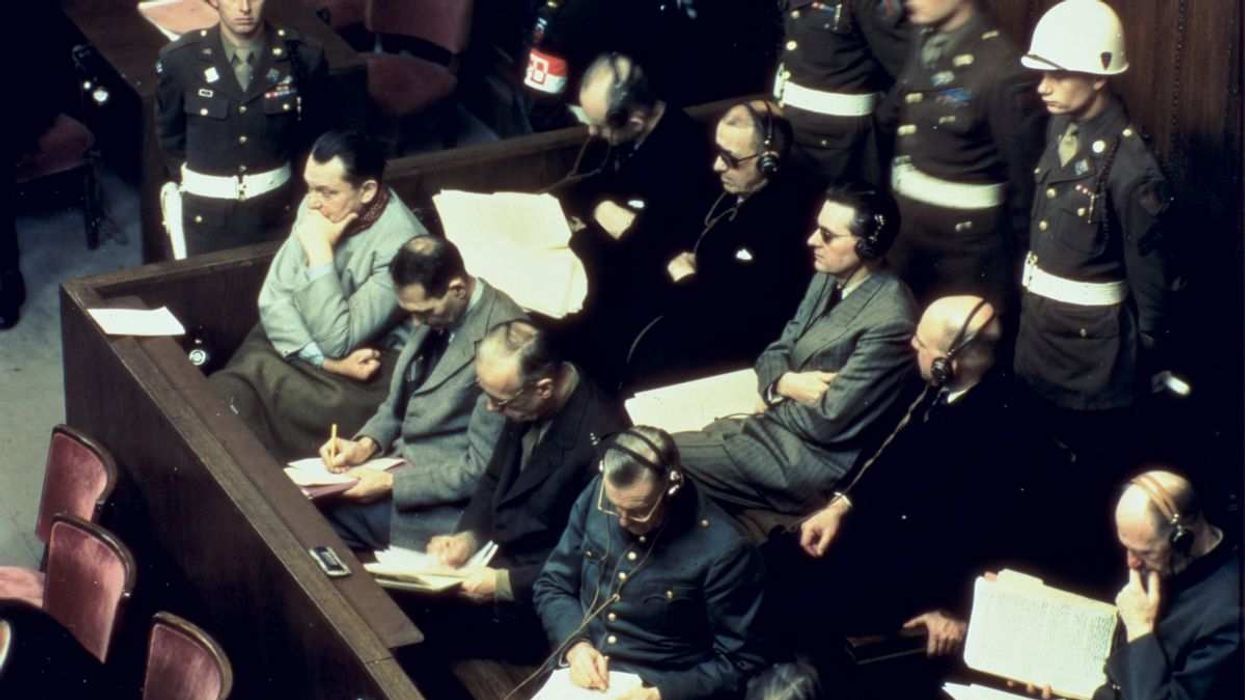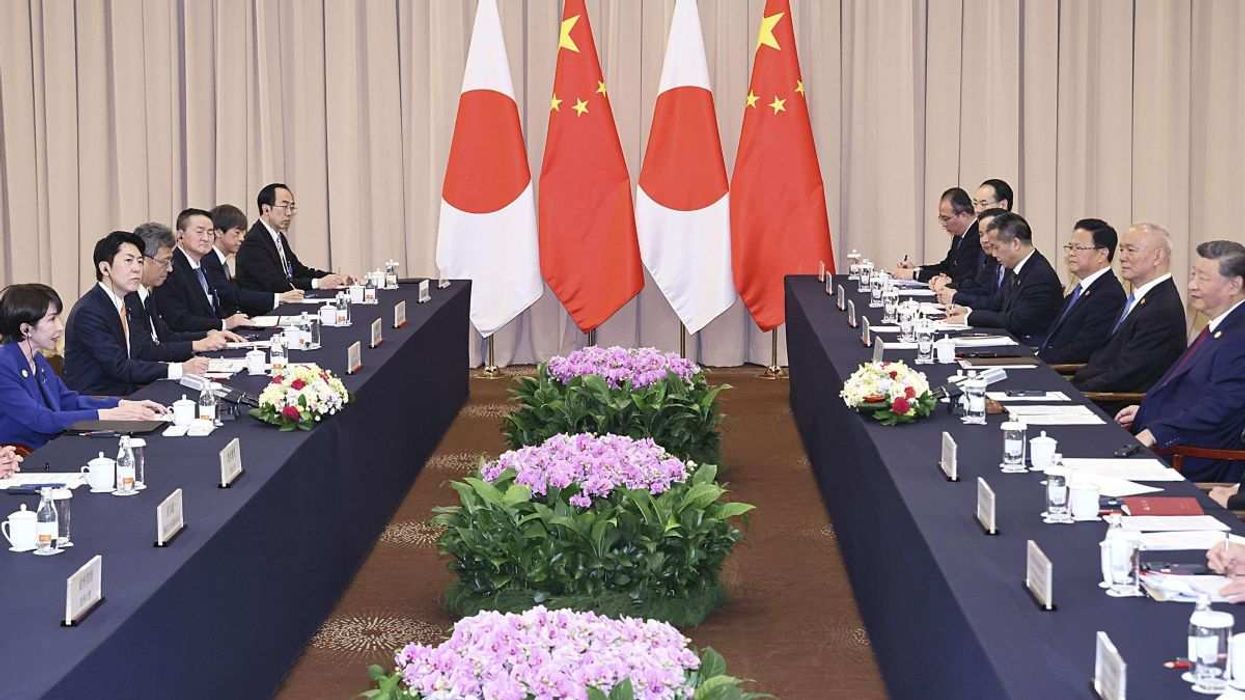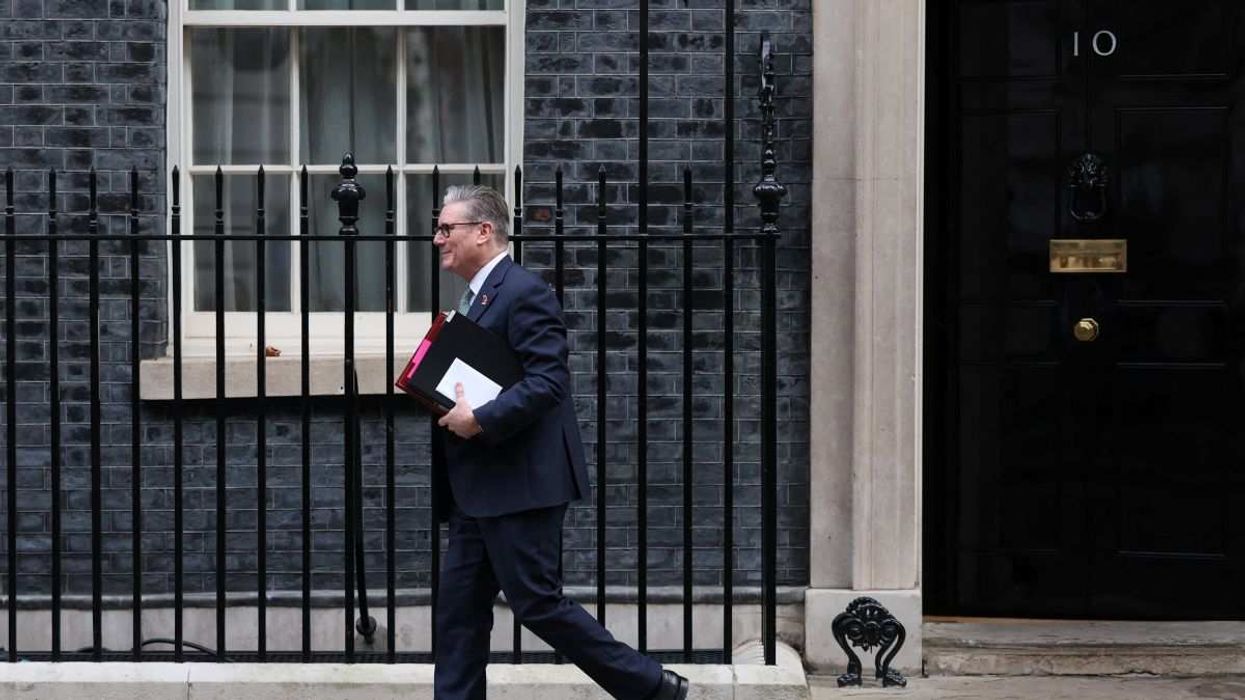45 years ago today, a handshake between Egyptian President Anwar Sadat and Israeli Prime Minister Menachem Begin laid the groundwork for nearly half a century of peace and cooperation between neighboring Israel and Egypt.
The Israeli-Egyptian relationship has survived two Palestinian uprisings and a series of wars between Israel and Hamas, despite Cairo’s early advocacy of the Palestinian cause. And now, with Prime Minister Benjamin Netanyahu vowing to send Israeli troops into Rafah, on the Egyptian border with Gaza, Egypt’s peace with Israel puts Cairo in a humanitarian quandary.
What is the Israel-Egypt peace treaty? After fighting five wars over three decades, Israel and Egypt made peace in Washington D.C in 1979, marking the first ever peace treaty between an Arab country and Israel.
The negotiations were the first successful effort at establishing lasting peace between Israel and one of its Arab neighbors. Egypt had lost the Sinai Peninsula to Israel in 1967, providing Tel Aviv with a crucial bargaining chip to secure its southern border and neutralize the region’s most powerful Arab country.
Meanwhile, Sadat’s failed attempt to retake Sinai during the 1973 Yom Kippur War led him to doubt his ability to overcome Israel militarily. But he needed Sinai to reopen the economically crucial Suez Canal, and a major ally to replace the Soviets who supported his predecessor Gamal Abdel Nasser. Negotiations with Israel at Camp David allowed Egypt to regain control over the Sinai peninsula, boost its economy, and bring the US on as an ally.
The treaty has enabled the two countries to make billions in cross-border trade and economic partnerships. Cairo also receives over $1 billion a year in military and economic aid from the US, while it coordinates with Israel in the fight against terrorism in Sinai.
Misery for civilians in Gaza. Even before Oct. 7, Egypt has been concerned that Israel could resolve the Gaza issue at its expense. Since Hamas’s attack on Israel, Egypt has held that a temporary or permanent displacement of Gazans to its territory, whether intentional or unintentional, is not up for discussion.
While Egypt is facilitating humanitarian aid into Gaza, hosting a deluge of refugees would strain its economy, which is already on life-support.
More than 1 million displaced Palestinians are squeezed into tent camps between the border of Rafah and Egypt's thinly populated Sinai Peninsula. Cairo fears that if it were to allow a mass exodus of Palestinians — starving, sick, and desperate as they may be — Israel might never let them go back. Cairo is cautious not to seem like it is collaborating with Israel against the Palestinians — but it also doesn’t want to inadvertently let in Hamas and worsen the insecurity issues in Sinai.
Egypt is building a cement-walled security perimeter near the border to hold up to 150,000 people in case the border is breached during an Israeli assault on Rafah.
The Oct. 7 attack already stalled the peace process between Saudi Arabia and Israel. If an invasion of Rafah jeopardizes the Israel-Egypt relationship, a foundational component of rapprochement between Israel and the Arab world, it would be another strategic win for Hamas at the detriment of the entire region's security.
